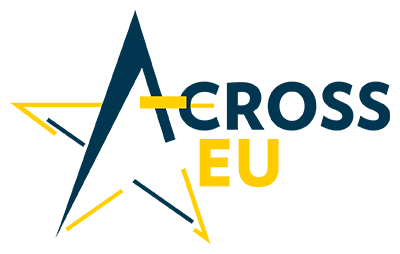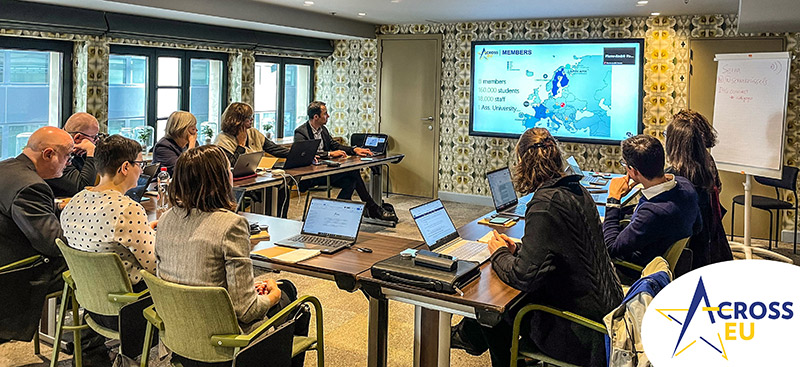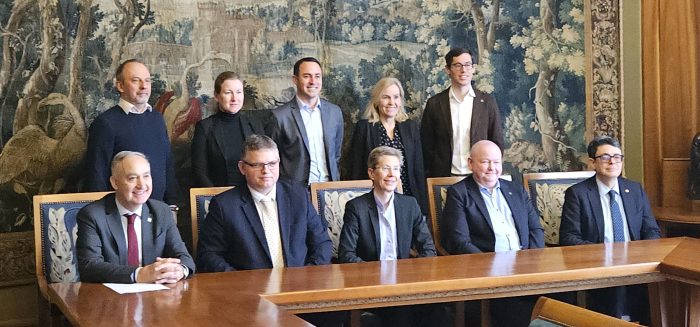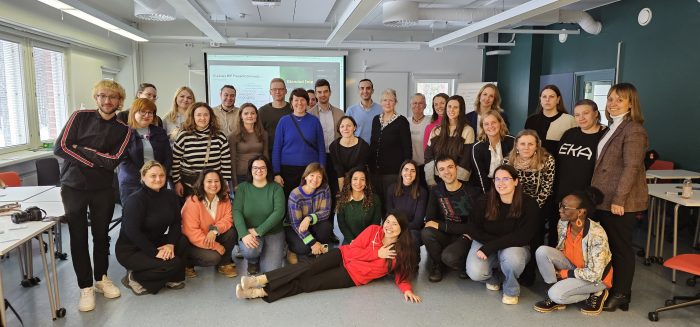The President of the University of Caen Normandy, Lamri Adoui, visited the European Commission in Brussels on 15 March. Accompanied by a delegation from the university and its European counterparts, he defended the Across European University alliance project before members of the Commission.
This alliance, coordinated by UNICAEN, brings together nine universities from eight different countries and aims to create an inclusive European university by 2030.
European universities, a further step in the creation of a European education area
Launched in December 2017 by the European Commission, the European Universities initiative is part of a vast project to create and structure a European education area. The establishment of a new generation of inter-university campuses on a European scale, built around initiatives and projects dealing with common societal issues (ecological transition, artificial intelligence, etc.), aims to improve the quality and attractiveness of European higher education.
This new stage in European integration aims to go beyond the traditional student exchanges that have made a programme like Erasmus+ so famous and successful.
European universities are thus committed to defining common long-term strategies, strongly integrated into the governance of each one, and allowing a real pooling of resources.
They must also imagine a new model of European campus, facilitating mobility for all and able to guarantee, in the long term, that at least 50% of students, from bachelor to doctorate level, will be able to benefit from mobility, whether physical, virtual or hybrid.
AcrossEU, a project for European transformation by 2030 based on the notions of inclusion and territory(ies)
The AcrossEU alliance, coordinated by the University of Caen Normandy, aims to build bridges and break down barriers between the various partner universities by linking students, teachers, researchers, university staff and regional stakeholders. The trajectory set for 2030 is based on four European directives:
- Defend European values, with the promotion and defence of human rights and European values such as peace, gender equality, inclusion and diversity.
- To be a driver of change, with the creation of a new structured and inclusive European university by 2030.
- To be open to society, by stimulating the creation of new knowledge, facilitating lifelong learning and developing active cooperation between scientific research and civil society.
- Accompanying regional development by stimulating joint research and innovation projects, developing transdisciplinary teaching and supporting student entrepreneurship.
In its approach to exchanges and mobility, AcrossEU will not only bring together – mainly virtually – students and staff from one country to another, but will also shift their perspectives from one disciplinary field to another.
AcrossEU also wishes to make an active contribution to regional development, in particular through support for research and innovation laboratories, interdisciplinary training and lifelong learning (retraining and further training).
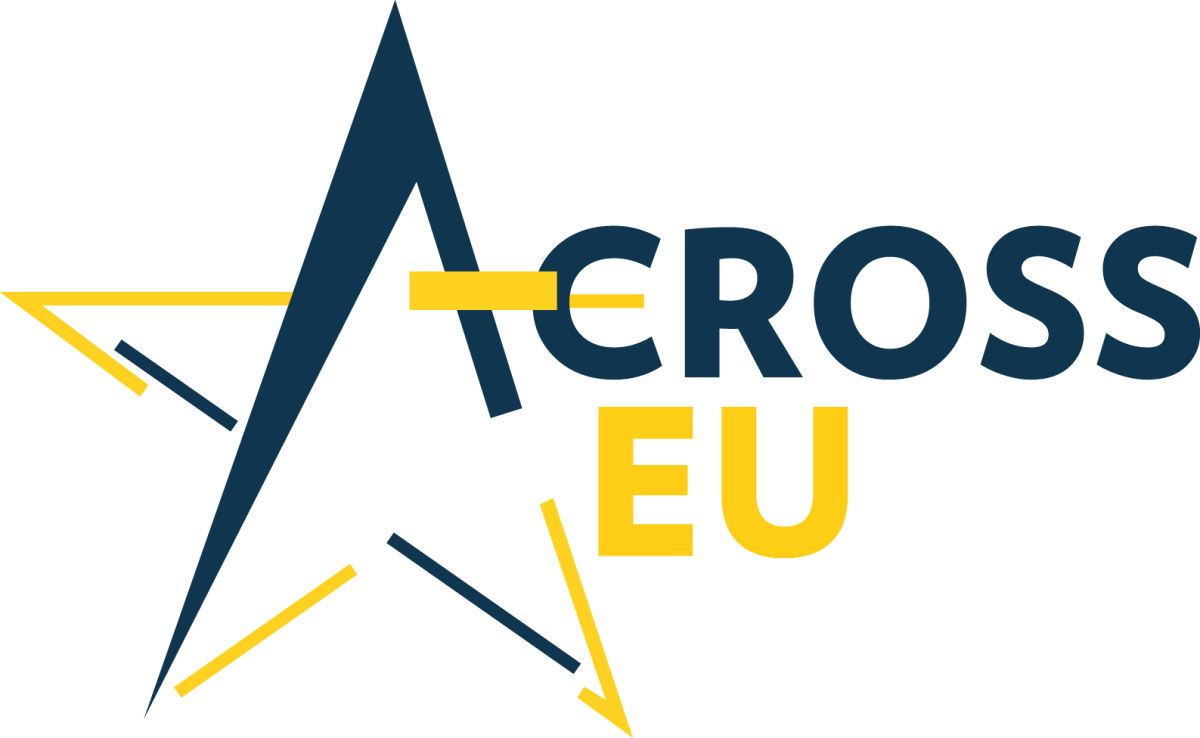
If the project is selected by the European Commission, the first tranche of funding will be used to develop a bottom-up, interdisciplinary curriculum with experiential learning opportunities, co-created and implemented by all partners, which will progressively lay the foundations for double degree and European diploma programmes throughout the European Union.
Members of the AcrossEU alliance
- University of Lapland (University of Lapland and Lapland University of Applied Sciences – Finland)
- University of Pardubice (Czech Republic)
- Università degli Studi di Siena (Italy)
- Ss. Cyril and Methodius University in Skopje (Northern Macedonia)
- Umeå University (Sweden)
- Universidad de Valladolid (Spain)
- University of Fribourg (Switzerland), as an associate partner
The partner universities have in common that they are strongly rooted in their regional territory and share the same values of inclusion.
The AcrossEU alliance in figures
- 8 countries
- 9 universities
- Over 160,000 students
- More than 15,000 teachers and staff
- And, on the scale of the territories concerned, a civilian population of 10 million inhabitants.
